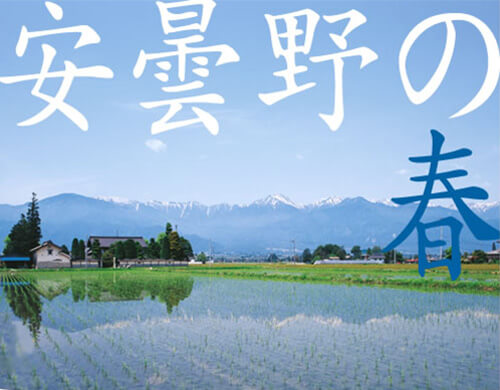
Azumino used to be a part of Shinshu, the former name of the region that covered Nagano Prefecture and a small part of Gifu Prefecture.
The stretch of land around Kita- and Minami- (North and South) Azumi counties, in particular the long, narrow basin stretching from Ohmachi to Matsumoto, is often referred to as Azumidaira or Azumino, both of which evoke poetic and literary images.
The word “Azumino” surely looks smart and sounds charming. For those who love Japanese history, it would bring to mind the mystery and romance of ancient times. But there is more to this region than just nice names. Along with the beautiful scenery of Japan’s Northern Alps, this area has possessed “something” that has captivated writers, artists, and other cultured people since the Meiji era.
Perhaps the basis of their spirit, however, was not embodied by the unique philosophical features of the Northern Alps or the poetic image associated with the name Azumino, but was by something quite opposite: harsh conditions of water and land with which mountain villagers struggled to make the best lives they could.
The number of tourists visiting this area is still increasing year by year. Concurrently, Azumino is still maintaining one of the most abundant rice belts in Nagano Prefecture.
An American saying:
“Nothing is better for the soil than the farmer’s footprints.”
Countless farmers dug and cultivated this land and made it into unparalleled productive fields. In turn, these developed resources have nurtured many people, however humble or famous they may be.